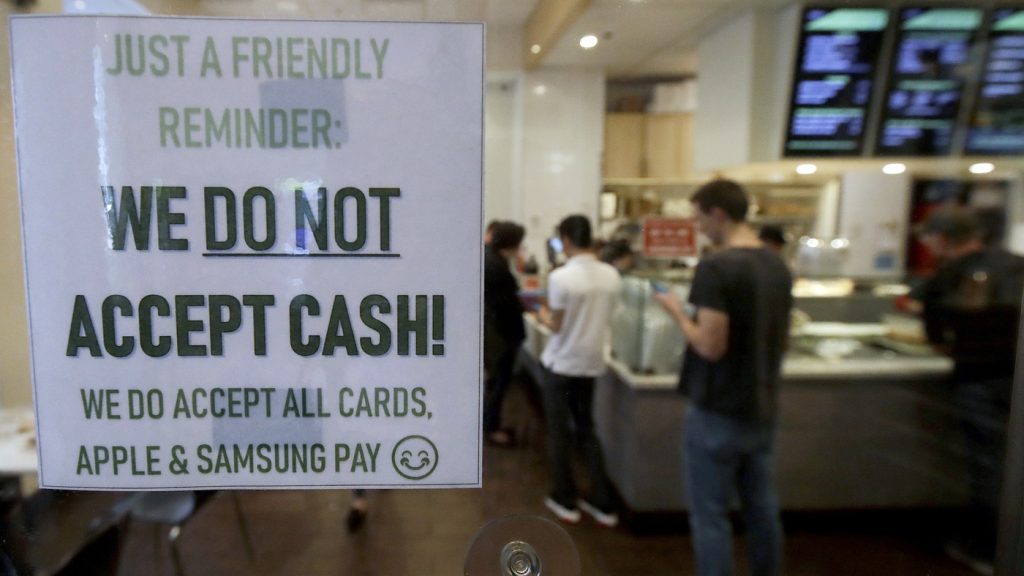Money is full of germs and can also carry viruses like the coronavirus which is why you should go cashless. We know money exchanges many hands, and some of those hands might not be so clean. But now with the worldwide coronavirus pandemic, the risks to your health after handling money are greater.
The Chinese government has destroyed tens of thousands in cash to curb the spread of the coronavirus disease. That is just one of the serious actions China has taken since the disease was discovered in the country's Wuhan province. While new infections are going down in China, they are increasing in the rest of the world. And that means greater vigilance is necessary.
Banks are in the process of disinfecting their cash by the use of ultraviolet rays and heat treatments. But the cash the everyday person is using is still in circulation, and it could go through dozens of hands within a few days before it gets to you. One of those hands could belong to a person who has been infected. Let's take a closer look at why going cashless during a pandemic is both precautionary and smart.

Image Source: Wikipedia.org
How Is Cash Affected By The Coronavirus?
The World Health Organization (WHO), has not issued a warning for people to stop using cash completely. They have however reiterated that you should wash your hands thoroughly after handling cash. To start with, the virus does not spread by penetrating your skin, but when it is on your hands and you touch parts of your face. If you touch your eyes, nose, and mouth, the virus then has a way of getting into your body.
Also, it is important to note that if you stick to contactless payments, but still do not adhere to washing your hands after you touch your credit cards, phone or keys, you are still susceptible to infection, so, whether using cash, or non-cash payment methods, always ensure that you wash your hands as many times as you possibly can.
What Actions Governments Are Taking With Cash During The Pandemic
- The Federal Reserve has quarantined all the money coming in from Asia for at least 7-10 days. Now, although contact with people or contact with the bodily fluids of an infected person is the main way of catching the virus, if you happen to hold money when infected, and then give the cash to a cashier, then, chances are that the virus shall be transferred from you to the cashier through the money you give to them.
- In South Korea and China, not only have they destroyed plenty of cash, but they are also quarantining all the money for 14 days after it has been subjected to ultraviolet light. In these two countries, they have been heating money in order to disinfect it and kill the virus. Research done by McKinsey & Co. shows that the surfaces of keypads and ATMs may hold the virus in place and linger on till they transfer to the next person.
Why The Coronavirus Can Live Longer On Cash Than Your Hands
The virus on your hand does not last as long as it does on cash. This is because, the enzyme that is found in sweat, is able to break down the virus. It will also survive longer on inanimate objects such as surfaces. This, therefore, means that cash could be one of the biggest transmitters of the virus. That's why it is important for people to find alternative means of carrying out transactions. Many countries have already adopted cashless technology and so going cashless should be easy.
If you are suspected to have the COVID-19, or you may have traveled from another country that is considered to be a high risk you should be put in isolation and must not transact in cash at all. Contactless payments will help in addressing the theoretical risk of easy transmission from one person to another.
Now, other methods of payment such as credit cards, banknotes, and even mobile phones are not 100% safe. The virus survives longer on inanimate objects than it does on your skin. But, using a cashless method is believed to come with fewer risks than money. Especially, if you do the swiping yourself so that no one else touches your card or phone.

Why You Should Go Cashless During A Pandemic Conclusion
We all need to do whatever we can to halt a disease that has now left thousands dead around the globe. Simple things like going cashless during this time can make a world of a difference. Also, following health officials' orders about the correct way to wash your hands and keep your distance from others can go a long way in ensuring you stay healthy and everyone around you does too.




